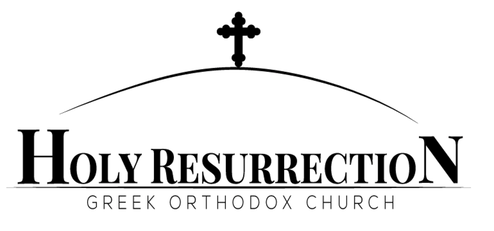First, perhaps we should consider what the Lenten period is for. Does it have a purpose? Historically, Lent was time for the catechumens to prepare for their entry into the Church. Over time this evolved to the six-week fasting period during which we practice some self-examination, go to more church services and fast from our most-favored foods.
Self-examination, according to Einstein, resurrects life from the wasteland. Jesus poses some difficult questions for us to consider on a personal level, such as what we do with our time and resources. The saints fleshed out these issues for us even more and thus we have Orthodox ascesis. One way to view self-examination is to equate it with being an athlete. How does one prepare for an undertaking? The athlete works out, develops muscle, eats correctly, and develops fine-tuned skills that allow him to perform physical feats. Our life in Christ takes physical expression but is primarily spiritual. We too should exercise, work out, eat correctly and develop some fine-tuned skills in order to prepare our heart to receive God. How?
It is helpful to make use of the weekly fasting schedule the Church gives us as a way to prepare for Lent. Our way of "working out" is to keep a prayer rule, keep the prescribed fast as best we can, do some spiritual reading and give alms. These practices (ascetical exercises) aid our body and soul in conquering our passions, as well as establish habits that follow us, not only through the Lenten fast but throughout the year. As we do, we find that the longer fasting periods are not such a shock to our system. We also find greater spiritual benefit as well.
So what should we anticipate? The obvious answer is Great and Glorious Pascha. It seems the more we “exercise,” the greater the joy when Pascha arrives. That is the short term gain. Lent is just a season, but its greater benefit is to call us back to Eden. That is the hidden and deeper benefit of the fast. It is greater than doing without food; the demons fast. Our effort should be to inculcate into our habits and our schedule greater emphasis on the condition of our soul. During Lent, not only should we prepare ourselves for Pascha but to meet Christ face-to-face on Judgment Day.
Our life in Christ should be just that—IN CHRIST. This coming Lenten season is the time to ask ourselves what do we truly want. In that process, we are challenged to examine motives and longings. What is our first thought after sleep? What do we do with our excess resources? Do we treat the stranger as did Christ? In the spirit of 1 John 1:9, are we continuing to confess our sins with a heart bent toward conquering our worst inclinations? Here is a big question for us: What are we going to replace our self-orientations with? The Christ-life is replete with otherness. Whom should we love more? How do we lay our life down for another? What can I give without expecting anything in return?
To the self-examining Christian, the answers to these kinds of questions reveal how he is living like Christ and the degree to which he deserves to be counted among the elect. Lent is a wonderful gift the Church gives us to reflect, get recharged, become more focused, and capture the vision for the ascetical life that makes people saints.
In Christ,
Fr. Ed


 RSS Feed
RSS Feed